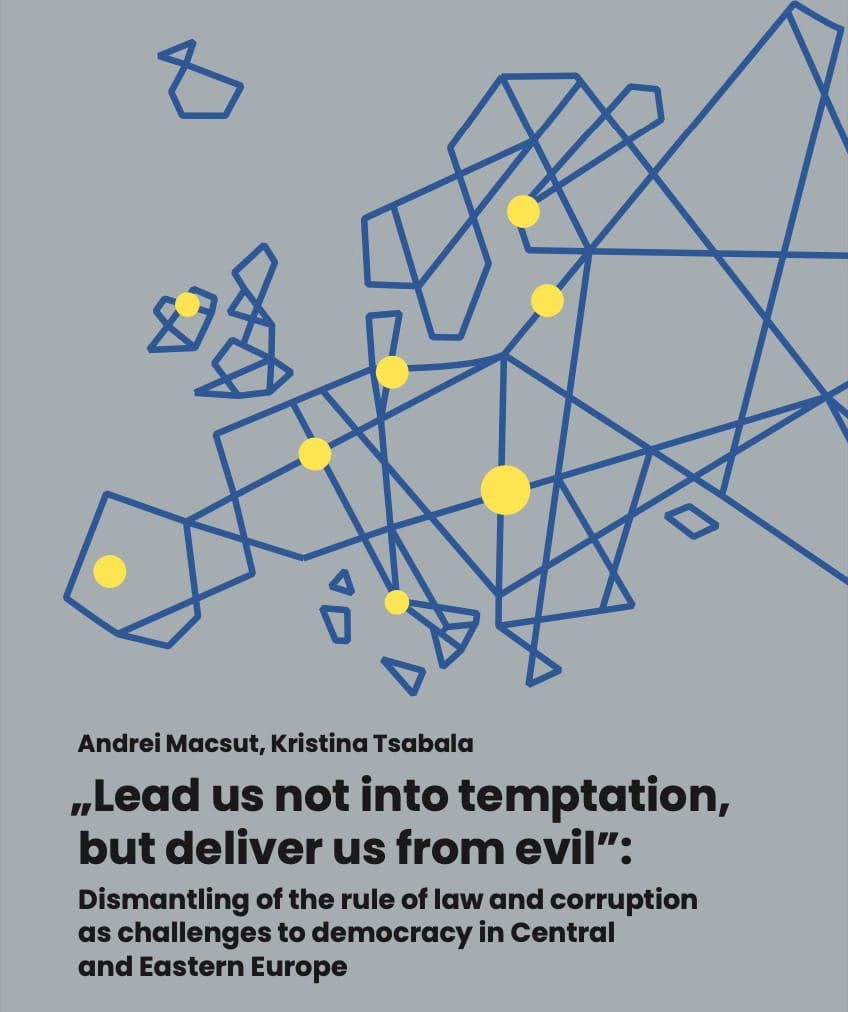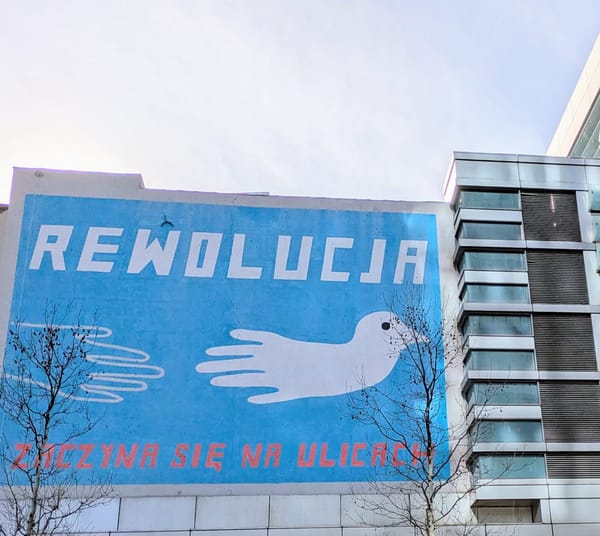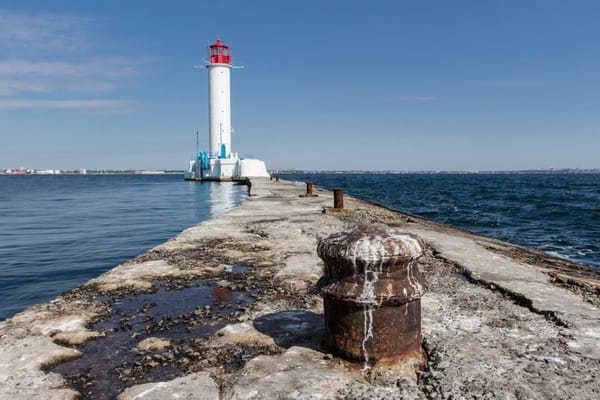The lasting grip of corruption
Understanding legal and psychological challenges to anti-corruption efforts

It is easy to judge corruption from afar. Up close, it can be hard to explain. I lived and worked in Providence, Rhode Island at the turn of the millennium. Buddy Cianci was mayor and king, his second time in charge of the one-time-pioneering industrial revolution city. It was labelled a Renaissance City, as it seemed to be coming out of decades of decline and becoming a model of urban revival. Or was it, as the federal prosecutor Richard W. Rose asked a jury in the US government’s case against Cianci for widespread charges of fraud, “a city for sale”?
For my neighbors and other longtime Providence residents, the answer was, “yes.” The revival felt real, AND Cianci was the charismatic mayor who made it happen. And corruption was just, well, in the water. Some, including people caught up in the net of the FBI’s multi-year Operation Plunder Dome investigation, seemed surprised to learn that kickbacks (in particular making donations to the Friends of Cianci charity in order to receive payment for work or promotions in the police department) were illegal.
From people outside of Providence, the Cianci saga (actually, his second) made for great stories. Corruption seems like a punch-line to outsider. To the people living with corruption in their local or national systems, corruption is a head-wind, and a wall.
Notes from New Europe is a reader-supported publication. To receive new posts and support my work, consider becoming a free or paid subscriber.
Living in Bulgaria this past year, I am reminded of that time in Providence, as corruption is both a punch-line, a reference point for this country, and something that people just kind of expect (if not accept). Were I not afraid to sound like I am blaming the victims of this corruption, I’d say there is a mindset problem. More broadly, there are significant structural problems that come from, and exacerbate corruption. And this corruption does hold Bulgaria back, as it does some other countries in the region.

Kristina Tsabala is an analyst in CSD’s Economic Program who focuses on anti-corruption. She and Andrei Macsut, a researcher at the Romanian Academic Society, have put out a paper about dismantling of the rule of law and corruption as challenges to democracy in Central and Eastern Europe. I asked Kristina to help us better understand the shared and distinct challenges in mitigating corruption in these eastern EU countries.
GG: It would be naive to pretend that corruption isn’t a threat all across the EU, yet there is a particular threat across these four countries. What are some of the most important problems that set these countries apart—and not in a good way—from the rest of the EU?
Tsabala: Here I would rather use the word 'believe ' instead of 'operate', because the legal framework exists but its existence is a problem in itself. It is created in such a way or used in such a way to push forward the personal interests of those in power/kleptocrats and to avoid accountability. And this is the main factor setting those countries apart from the rest of the EU member states. Rule of Law and access to justice for all are critical for the entire EU and it is one of the fundamental principles that makes the EU stand out to the rest of the world. Those principles protect human rights, the well-being and security of the people within it. Thus, while instruments such as legislation and institutions are to be found everywhere, what is rather problematic is how they are used.
GG: And you say that these instruments are used with the “wrong purposes,” in Romania, Hungary, Poland and Bulgaria?
Tsabala: “Reforms” bear negative connotations in those countries because the public expects that legislation is tweaked by politicians to serve their aims. For example, in Hungary, in 2022 the government was required to improve its transparency level because it was not clear how public officials declare assets. For example, Victor Orban is extremely wealthy even though on paper he is only a common Hungarian. The changes that were drafted, however, effectively required less declaration of assets but the reform seemed as an improvement to outsiders. This phenomenon is called legal capture and it forms part of the broader one of state capture.
Another example in Bulgaria is the Anti-Corruption Commission created in 2018 which was used for repression. The powers vested in this institution can bankrupt businesses and ruin people's life without being de facto found guilty of crimes. On the other hand, a similar institution brought significant changes in Italy in the times of Prosecutor Giovanni Falcone in his war against the mafia. What I am trying to get to is the importance of political will and the intentions of the people in power. Anti-corruption and integrity infrastructure can yield a lot of improvements if they are used for this purpose.
Perhaps the best example explaining this issue is in Romania. The Anti Corruption Agency in Romania (National Anticorruption Directorate) was created in 2002 but it was not until the leadership of Laura Kovesi in 2013 when politicians started going to jail. Before 2013, this institution was largely a fictitious one. It is important to note that institutions are crucial and without them results are impossible. If we do not have the framework to seek justice and define it, it is impossible to deliver it. What lacks in those states is the people who want to deliver it. Even though Romania progressed immensely, the rest of the judicial system is flawed. It is interesting to analyze the details. In Bulgaria, the prosecutorial branch is corrupt while in Romania it is the judiciary and not the prosecution. This means that the prosecutors in Bulgaria and the judges in Romania are more susceptible to corruption pressure. Essentially, it is the leadership that is important and its will to deliver justice and hold people accountable.
GG: In a way, it seems corruption is something like a shared language for these countries, AND there are distinct dialects. Can you highlight briefly what we should know that makes Bulgaria distinct from Poland, and Romania from Hungary, for example?
Tsabala: It is commonly thought that Romania and Bulgaria are culturally corrupt and it is impossible to overcome this 'social trait'. Well, it is great to look at examples like Hungary and Poland in order to disprove this common belief. Poland and Hungary were the over-achievers of the transitioning countries (excluding the Czech Republic, which is likely to have similar issues in the future) and they were thought to have achieved democracy by the turn of the century.
Their regress in democratic rule started around ten years ago and today they are in their worst positions since 1989 (though in Poland the current government is trying to reverse those changes).
On the other hand, Romania and Bulgaria have never been better and the period after 2020 is the best scoring in anti-corruption and democratic performance. These two perceptions are important because they impact the way in which we analyze and think about the reality even though the four countries are currently more or less at the same level in upholding the principles of Rule of Law.
This democratic (Poland,Hungary) or less democratic (Bulgaria, Romania) history accounts for the capacity of public administration, the state apparatus and the susceptibility to corruption. When you look at indexes regarding different parts of the administration, Poland and Hungary perform better, as lower level public administration is likely to be bribed less and to accept bribes less (which is one of the most notorious forms of corruption). This leads to a much higher level of trust in the public institutions. Perhaps the last elections in Poland are an important example for this. The government was changed and they are currently trying to reverse the damage and Poles are proud of their democratic achievements in the past.
GG: For those of us watching as outsiders, can you give us some important indicators of progress (or backsliding)?
Tsabala: This is a tricky question. One of the main obstacles is how outsiders understand the state of play in our countries. It is quite unimaginable for the Euro-Atlantic community how our systems work and I can give a great example. Delyan Peevski, currently leader of the party "Freedom for Rights and Movements" has been very active in driving “anti-corruption reforms” and “pro-Atlantic attitudes.” His party also is perceived as the protector of minorities in Bulgaria and progressive values as part of the European ALDE. However, Peevski was sanctioned by Magnitsky alongside around 60 entities related to him. He is related to the bankruptcy of the Corporate Trade Bank in 2014. The prosecution claimed that there is no evidence to file a case against him. He lived in Dubai for several years and has not entered parliament for a long time even though he was a Member of Parliament. The party itself was tied to Putin's and Erdogan's leadership and was not really advocating for any liberal or social agenda protecting these minorities.
Meanwhile, Bulgaria's former public prosecutor stated upon his resignation in a press conference that there are postponed cases due to personal agendas related to Peevski, Boyko Borisov and many other people. If there was any respect for the judicial system in Bulgaria, such a statement would have caused a national scandal. No one really asked “What was this prosecutor doing for 14 years?” because it is normal to be indifferent to crimes committed by the people in power.

This conversation with Kristina, and her paper, remind us that just as we can’t cut corners in dealing with corruption, we must wade into the complexities in understanding how it is sustained. The familiar challenge of the need for a shift in a community’s mindset seems enormous. Here’s hoping that this introduction to the work helps you, us, in our efforts to understand the challenges faced globally, across Europe, and directly by the people in Bulgaria, Romania, and others.
Thank you for reading Notes from New Europe. This post is public so feel free to share it.
Download Kristina Tsabala’s report, Lead us not into temptation, but deliver us from evil”:Dismantling of the rule of law and corruptionas challenges to democracy in Central and Eastern Europe here.
Incidentally, I’ve timed this post to coincide with the 25th anniversary of Operation Plunder Dome becoming public. The Providence Journal, the newspaper that provided invaluable reporting to Rhode Islanders and the country over the course of the investigation and its corresponding trials, looks back at that day, April 28 1999, here.



